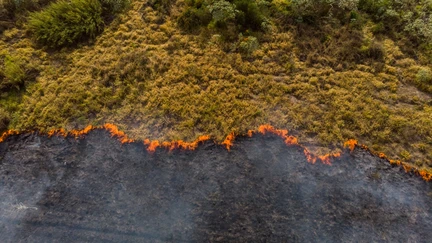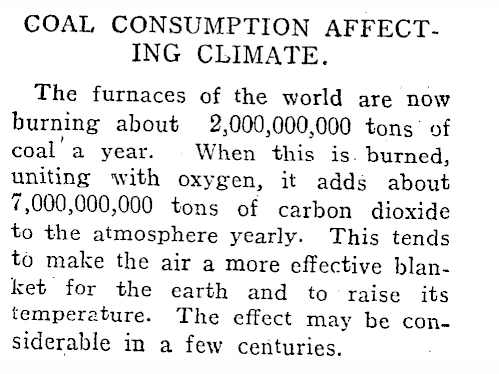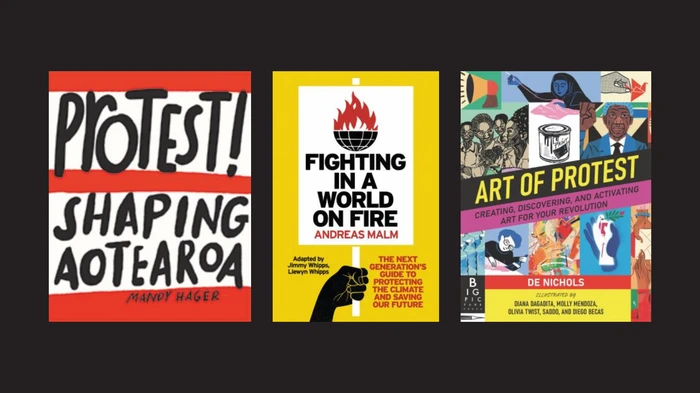Ain’t no power like the power of the people cause the power of the people don’t stop
Climate change! It's here, it's happening, it was predicted 112 years ago, and if you continue reading this post you'll receive some climate-change-related advice from an excellent New Zealand author.

Did you know climate change was first anticipated in an article in the Rodney and Otamatea Times, Waitemata and Kaipara Gazette in 1912?

RODNEY AND OTAMATEA TIMES, WAITEMATA AND KAIPARA GAZETTE, 14 AUGUST 1912, PAGE 7 on Papers Past, licensed under CC BY-NC-SA 3.0 NZ DEED
Ah yes, "in a few centuries".
Another example of AoNZ beating the rest of the world, and, hopefully, we can try to continue leading by example.
With that in mind, here are three new or recent books in our collection that are important tools for your arsenal:

Protest! : shaping Aotearoa by Mandy Hager is a selected history of protests in AoNZ, from Hone Heke right up to the climate protests. This amazing book is from 2020 and ends on an optimistic note: the government at the time was making some positive steps towards the climate crisis, mostly due to activists, many of whom were teens. We reached out to Mandy Hager and asked for a brief update! She replied,
'Now, four years on from writing 'Protest! Shaping Aotearoa', it strikes me that there has never been a more important time for speaking out and standing up for human rights and our environment. The decisions being made now will affect all our futures, so it's vitally important to look at what is going on and ask 'who does this benefit?', 'who does it hurt?', 'who is being excluded from the conversation and benefits?' and 'what can we do to ensure a safer, fairer future for us all?' Much as we might find politics petty and infuriating, it's important not to look away; politics affects every aspect of our lives. Collective action does make a difference, as 'Protest!' illustrates. Band together. Speak out. Act! The stakes couldn't be higher. Kia kaha.'
Thank you Mandy!
Fighting in a world on fire : the next generation's guide to protecting the climate and saving our future by Andreas Malm is the young person's version of the original book (which is available as an ebook) that the recent film How to Blow Up a Pipeline (in our collection) is based on. Sometimes circumstance demands urgent action, but it's not always clear or easy to find what works and what doesn't work, and Fighting in a world on fire presents many historical and contemporary examples of justified direct action.
Finally, Art of protest : what a revolution looks like by Nichols De is a history of the visuals of protests, with loads of cool examples of effective messaging. It gives techniques (like screen or digital printing), typography, technology, and zines, which we can always help you make (just ask!) and potentially add to our massive collection.